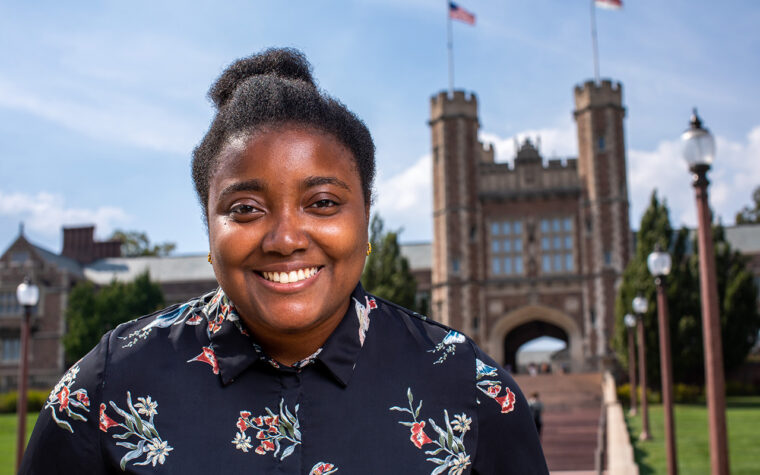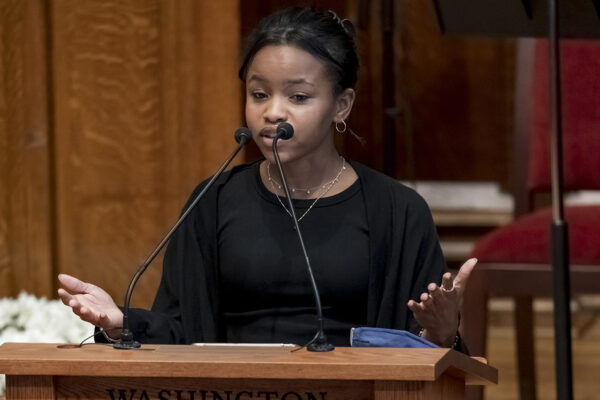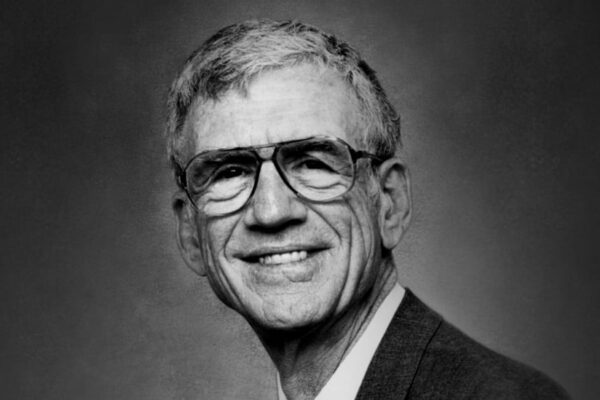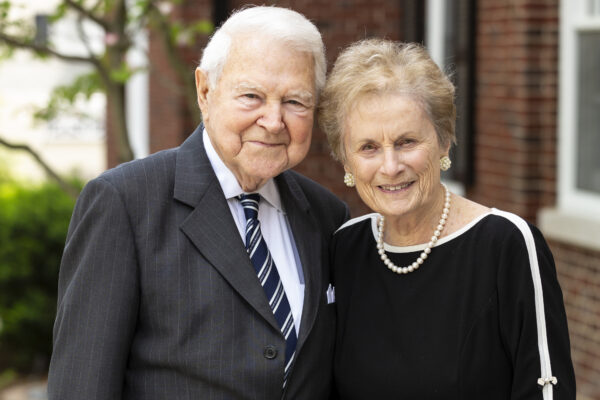John Harrison York grew up in Mississippi and hadn’t heard much about Washington University until he attended a college fair during high school. But he was a devoted fan of Cardinals baseball, so studying in St. Louis was appealing.
But the thing that set his course for this university was the Danforth Scholars program.
“It was the deciding factor for me to be able to go,” he recalls. “I will never forget getting that phone call. I mean, I lost it. It’s up there as one of the happiest moments of my life.”
York credits the scholars program with giving him a community to call his own and setting him on his path to serve others.
The William H. and Elizabeth Gray Danforth Scholars program was launched in 1998 in tribute to the former chancellor and first lady’s leadership and service. The scholarships, which provide full and partial tuition, are awarded to entering first-year, transfer and graduate students who personify high ideals and whose lives show integrity, selflessness and dedication to scholarship, leadership and the community.
In the months since Chancellor Emeritus Danforth’s death in September 2020, friends and supporters of Washington University have honored his legacy by contributing more than $32 million to bolster the Danforth Scholars program, particularly its scholarship endowment. This includes 16 donors who are endowing named Danforth Scholarships, which will underwrite scholarships for up to 26 students. The effort is part of a larger fundraising initiative — led by Trustee Andy Bursky, AB ’78, BS ’78, MS ’78, and Olin Business School Dean Emeritus Bob Virgil, MBA ’60, DBA ’67 — that has raised more than $71 million universitywide in memory of Danforth.
In this Q&A, hear from just a few of the nearly 700 students who have benefited from the Danforth Scholars program and how they have used that gift to give back in their own lives.
John Harrison York, AB ’12
York, who was also an Ervin Scholar at WashU, is today a principal of Culleywood Capital, a community development loan fund in Jackson, Mississippi.
What drew you to the scholars program?
“I loved the fact that there was the community service component to it. Service has always been a big part of my life.”
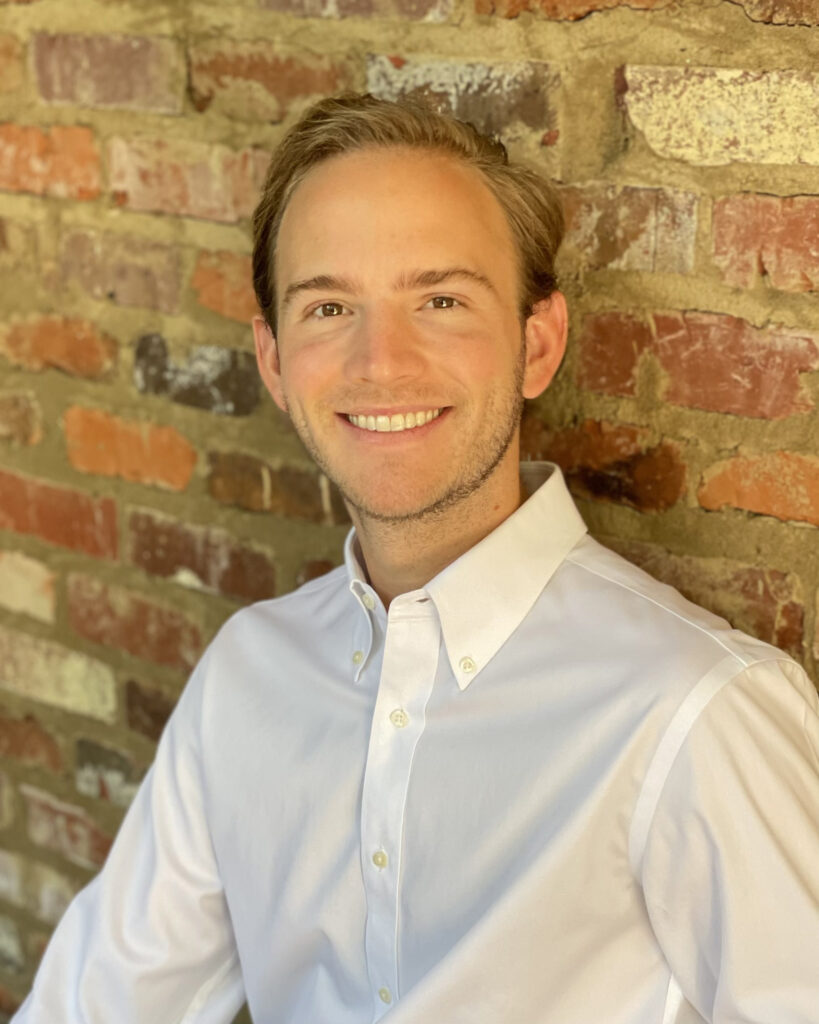
The focus on creating a community of scholars mattered too. “It felt like a family. It’s a group of people who held each other accountable and pushed each other to do better.”
You started out in management consulting, but then your career path took a turn. Tell us about your time as executive director of the Future Leaders Institute Charter School in Harlem. And what are you doing now?
“I crazily agreed to do it, at the age of 25, with no education experience. But it was awesome. It was not anything I was trying to do for a career, but we had a really positive impact. I’m very proud of the work that we did.
“I have now moved back to Mississippi and am in community development work, managing a fund that invests in small businesses, affordable housing developers and entrepreneurs.”
What are your memories of Chancellor Emeritus Danforth and his legacy?
“WashU is just an amazing collection of down-to-earth, really smart people. And I think that’s what sets WashU apart, and Chancellor Danforth is fully emblematic of that.”
The commitment to giving back resonated too. “My parents helped raise us on that belief. I think the Danforth Scholars program continued to ensure that I did not lose sight of that while in college. It was a training ground for being an actual adult, and choosing to prioritize giving back to the community.”
Teresa Teodori, BSBA ’09, MS ’09
Teresa Teodori, who earned a bachelor’s degree in business and a master’s in finance from Olin Business School and who received an Emerging Leader Award from Olin in 2019, works as the senior vice president of Americas private equity at Gerson Lehrman Group (GLG) and lives in New York.
What was your introduction to the Danforth Scholars program like?
“It was tremendously impactful in terms of my choosing to come to WashU. Celebration Weekend made me fall in love with the school. I will never forget stepping foot on campus and being so immediately impressed by the amount of energy and passion here.”
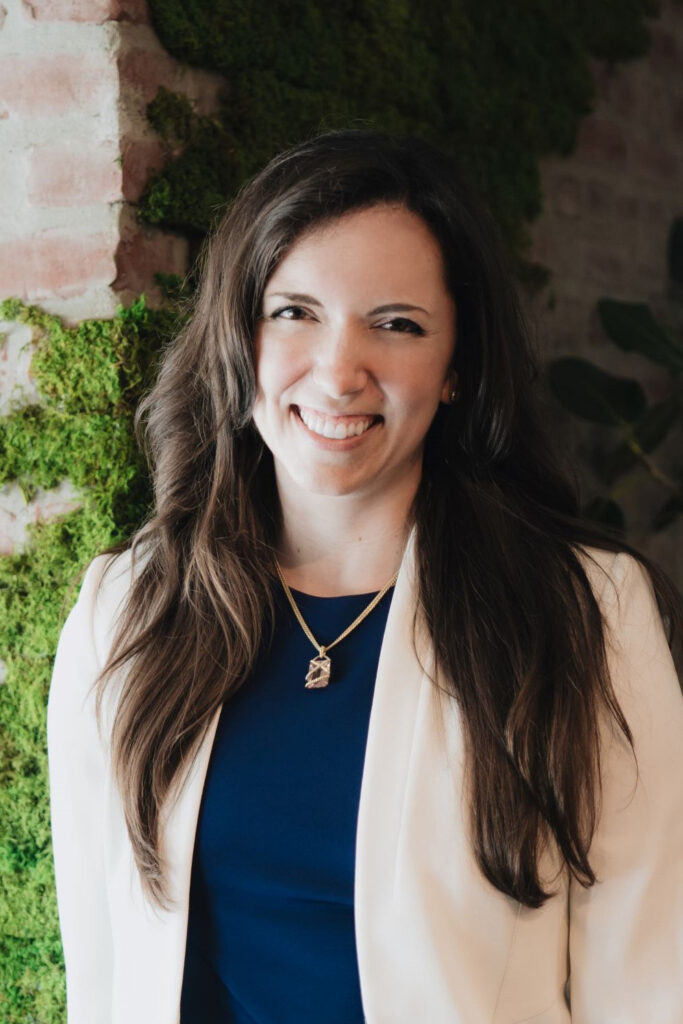
Like others, she credited the scholars’ time at Camp Miniwanca before the school year began as having a big influence. “That was such an incredible experience. It was both a really nice way to ease into the college experience and being away from home, as well as to form early friendships before the semester even began”
How did you become a leader during your time at WashU?
“A saying I heard often at WashU was, ‘You get out what you put into things.’ That really rang true for me. There were many opportunities to give a lot and to step up in a big way, in a way that both helped me define who and what I wanted to be as a leader and helped me refine my style as it related to working with and inspiring others. I found WashU to be enormously impactful as a training ground.”
How are you living out the Danforth Scholar values today?
“So many people helped me get to where I am today. I’ve always wanted to continue to pay that forward. One of the things that’s been so gratifying since graduating has been contributing to scholarships and helping the students who are coming after me. The more that we as students can really live up to the WashU name, the Olin name, the Danforth name, the more it shapes the impression that people have of who we are as a school, the type of students we attract, and what we’re capable of.”
Nicole Solawetz Cortés, AB ’06, MSW ’12, JD ’12
Nicole Solawetz Cortés, earned a degree from Arts & Sciences, majoring in psychology and in Spanish, and then worked abroad. A few years later, she returned to WashU as a graduate student, ultimately earning joint law and social work degrees. She’s the co-founder and co-director of a nonprofit, the Migrant & Immigrant Community Action (MICA) Project in St. Louis, that works with immigrants to overcome barriers to justice through legal representation and more.
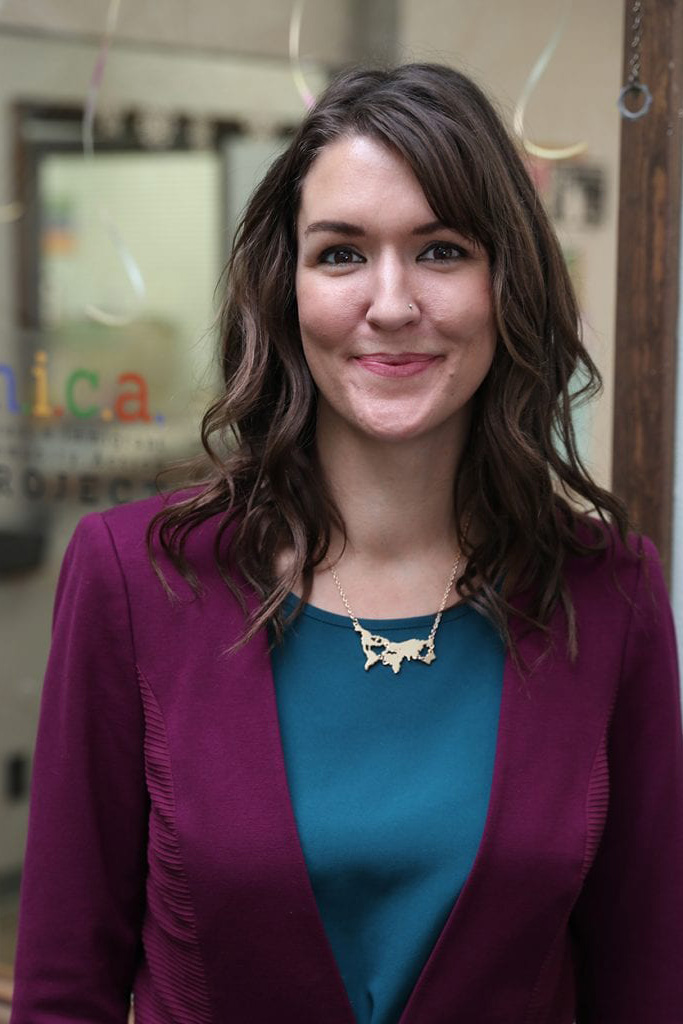
For her community service efforts, she’s been recognized with the following university awards: the Gerry and Bob Virgil Ethic of Service Award in 2013, the Brown School Distinguished Alumni Award in 2015, and WashU Law’s Distinguished Young Alumni Award in 2018.
What role did the scholarship play in your decision to come to WashU?
“It was just transformational. But for the Danforth Scholarship, I certainly would not have attended WashU.”
How was your time in the program?
“The Danforth Scholars family was kind of the best first place to land. It really did give a flavor of closeness and getting excited as a young person about being around other people who cared to learn about important things.”
How did the diversity within the Danforth Scholars program help you as a student?
“That really added to the richness of the program and community that was built around and within each class. More than anything, I remember how everyone’s interests were so distinct, and that how, even so, there were things that connected us all.”
How did the program and Chancellor Emeritus Danforth’s commitment shape who you became?
“It was just the immense gratitude of knowing how impactful the financial support was to me. But for Dr. Danforth, I certainly wouldn’t have ended up staying here or wanted to commit to this community in the ways that I have both personally and professionally.”
Helen Webley-Brown, Arts & Sciences Class of ’22
Helen Webley-Brown, an international student who hails from London, expects to earn a bachelor’s degree in political science in May 2022. In addition to being a Danforth Scholar, Webley-Brown is a Gephardt Institute Civic Scholar and a 2019 Ralph Bunche Scholars Award recipient (part of the James M. McCleod Awards).
You first came to campus for the scholarship weekend, flying on your own for the first time. What was your first impression of the program?
“An older Danforth Scholar met me at the airport and brought me to campus. That said what kind of program it was. The Danforth Scholars are so willing to help you even if you don’t know them.”
How has the program helped you grow as a student?
“The Danforth Scholars community immediately made me realize that there’s so much more out there, there’s so many more people out there to be mindful of. So instead of always thinking about ‘What do I need to do for myself?’ I was able — and I was pushed — to think, ‘What can I do for others, in the Danforth Scholars community and beyond?’”
You started a student club, now known as European Horizons, to connect international students, and you have been involved with a pre-law student group. How did the Danforth Scholarship influence that work?
“It’s easy to recognize that there’s a barrier and just be mad about it. But in talking with other Danforth Scholars, I realized there’s something I can do in my own little way to change that.”
What will you take with you from the program?
“They believe in you, even if you don’t believe in yourself in that particular moment. You can take so many lessons that you’ve learned within the Danforth community and then apply them outside of it. There’s a big world out there. It’s not just a little bubble.”
To learn more about the Danforth Scholars program, visit here, or to learn how to make a gift to the scholars program in honor of the late Chancellor Emeritus Danforth, visit here.
